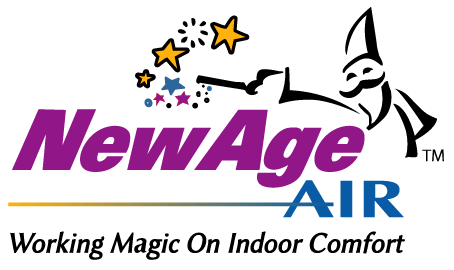Many Pennsylvania homeowners are going to be minding their energy bills this summer and trying to save energy. There’s a smart way to save energy while minimizing service or comfort. That’s the basis of engaging energy conservation and energy efficiency in your home efficiency strategy.
Energy Conservation
Energy conservation goes a step beyond turning off the light when leaving a room. That’s responsible good sense. Energy conservation, however, is using lower watt lighting when you would, perhaps, rather have a brightly-lit room or area. You’re sacrificing a service in order to reduce energy consumption.
Energy Efficiency
Energy efficiency is an important element of your home efficiency strategy that gives back. Energy efficiency may be thought of as saving energy but without a loss in service or comfort. In many instances, the service or comfort aspect is improved. And that’s the goal when you’re talking to your HVAC contractor regarding home and system maintenance and efficient upgrades when the time comes.
HVAC Tips for Conservation and Efficiency
The heating, ventilation and air conditioning (HVAC) components in your home are part of the entire home system. The efficient operation of each system, such as water heating and insulation, and your ability to conserve maximum energy depends on one another. If the air conditioner is operating efficiently and your home is well insulated, you’re saving energy and it’s easier to turn down the thermostat.
One example of smart energy efficiency practices is an annual air conditioner or heat pump tune up. Preventive maintenance is important to ensure your systems operate at maximum capacity and efficiency, and reach their full useful potential. Annual preventive maintenance allows a technician to catch problems early and prevent predictable problems that occur when maintenance is lacking.
An example of energy conservation is switching to a programmable thermostat. It will seem it belongs in the energy efficiency category when you utilize its convenient features, but programmable thermostats make it easier for you to conserve energy automatically at preset times. Why not enjoy waking up and arriving home to your favorite temperatures while saving energy in between? That’s smart home efficiency.
Sealing the Envelope
Your home’s envelope consists of the insulation barrier that separate the living spaces from the attic and other areas that aren’t conditioned. Air sealing and shoring up insulation are both energy efficiency upgrades. They’re practical, excellent investments, offer nice return in energy savings, and tend to last for a very long time.
The best way to go about sealing and insulating your home is to invest in an energy audit. You may perform a basic audit yourself or call your HVAC contractor for a professional assessment using high-tech equipment to go inside walls and every nook and cranny of the home. A professional energy audit provides you the information to make the most logical home efficiency upgrades. You’ll gain information such as how much energy you’re using, how much you’re wasting and where the wasted energy is going.
Water Heating
Water heating is often overlooked as a system that can save substantial energy. Did you know that water heating accounts for as much as 20 percent of the energy budget? There’s plenty of room to save energy through conservation and efficiency.
- Check all the faucets and fixtures. Install low-flow shower heads and aerators where needed. You don’t lose any pressure but get a better water flow, save water and water heating costs.
- Make sure all hot water pipes are wrapped with fiberglass insulation sleeves or wrap. You reduce the wait time for hot water, increase temperature by a few degrees and, again, take a bite out of that water heating bill.
- The water heater should be serviced every year. It needs to be flushed to get rid of mineral and debris deposits that are hindering efficient heating. The anode rod needs to be replaced every three years. That’s the component that protects the lining of the storage tank from corrosion by metals and water impurities.
- Turn back the water heater’s temperature to 120 degrees. That’s plenty hot, and you’ll save energy. If you’ve insulated all hot water pipes, including the water heater’s pipes, you should have ample hot water at this temperature.
For more information about energy conservation and energy efficiency strategies for your Collegeville home, please contact New Age Air today at 610-298-0271.

